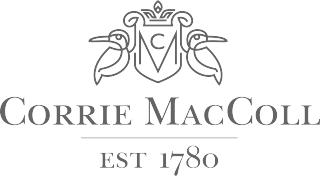Q&A: Meet Benoit Snoeck, CEO of our Hevecam plantation

Q: Tell us a little more about yourself and your role as CEO of our Hevecam plantation in Cameroon.
A: To begin with, I grew up in Africa across Congo, Madagascar, and the Ivory Coast. After my university studies in Belgium, I returned to work in Côte d’Ivoire for twenty years, mainly in the cocoa and coffee sector. At the start of the war in Côte d’Ivoire in 2003, I repatriated my family to France and followed them shortly afterwards. I started a construction business and managed it for 6 years until I started to miss life in Africa. I then returned to work for different companies across Nigeria, Sao Tome, Gabon, and finally landed in Cameroon to act as Hevecam CEO for Corrie MacColl.
Numerous reforms have since been initiated to put the company on a successful path through reorganisation and the re-establishment of procedures. In fact, my duties at Hevecam began with the establishment of an inventory. We’re also working to connect the different sectors within the company, and to strengthen communication with the key authorities and State bodies.
You bring extensive experience in various sectors, including coffee and cocoa, what can the rubber industry learn from other export industries?
I’ve found that the management practices across the agro-industry sector are the same whatever the product. Ultimately, it all lies in the strategic management of our teams; a team leader who sees the value in nurturing skillsets will obtain better long-term results for the company. From my experience with other perennial agricultural plantations, it’s only possible to meet commercial objectives with respect for the following values: rigour, respect for procedure, and strong internal and external communication.
Asia represents 93% of the world production of natural rubber, how are you going to ensure that the Cameroonian product of the Hevecam plantation is recognized for its competitive and quality standards?
Whilst it represents a minority of the world’s rubber production, the quality of Cameroonian rubber is recognised globally for its exceptional technical qualities. Hevecam has built a positive reputation for the quality of its latex, and has strengthened its factory production for latex concentrate to serve the medical industry. Maintaining the quality of the harvested latex, and maintaining control of production in the fields and in the factory will ensure that the exported product receives the recognition it deserves.
Sustainability is an integral part of Corrie MacColl’s corporate mission, how will you encourage her in the day-to-day operations and future plans of the plantation?
We will continue to publicise and enforce the sustainable development policy (SNRSCP) adopted by the Group, and ensure that our zero-deforestation policy is respected as our business grows. We will also ensure that our industry certifications are maintained – predominantly ISO 9001, Heveapro, Legal Source and AWS. In the near future, we also aim to obtain the ISO 14001 certification on environmental standards, and the ISO 45001 certification on working conditions.
As one of the largest private employers in Cameroon, Hevecam provides all daily necessities such as housing, education and health facilities for both its employees and their families – totalling a vast population of 42,000 people. What challenges and opportunities does this bring?
Hevecam has 17 villages, all equipped with dispensaries, schools, and even high schools. Hevecam also has a 150-bed hospital, the largest and best equipped hospital in the region. The main challenge in this context is to maintain social harmony, and to continuously monitor social initiatives so that they remain successful and cost-effective. It is also important that the population maintains its sense of independence. Above all, Hevecam must remain a modern and fair employer in the field of agriculture and industry, working alongside the local authorities rather than replacing them. This requires effective communication and partnership with the ministries.
Finally, what aspect of your role do you appreciate the most?
The role is challenging, although I appreciate the opportunity to interact with so many of our employees and contribute to the company’s reorganisation. I’m optimistic about Hevecam’s future for our employees and the plantation population, as well as for our shareholders.
